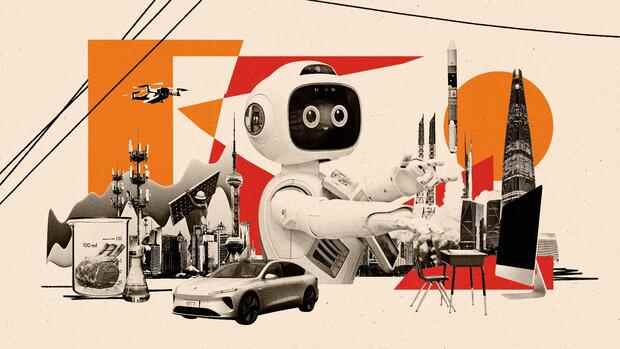Berlin It’s a shock when I go shopping in Germany again for the first time in three years. With card or cash? the saleswoman asks me. With a card, I say. I put my credit card on the reader, done. I don’t even have to enter a secret number. And that for just a few euros!
The same in the café, in the restaurant and at the Asian shop around the corner. Only at the hardware store does the saleswoman complain that I couldn’t pay the 17 euros in cash – that’s the Germany I know.
After three years, in which I was only briefly in Germany in mid-2021 due to the strict entry regulations in China, the country seems to have made a lot of progress overall in terms of digitization – not just when it comes to paying. Maybe my impression is wrong, maybe it was already possible to pay digitally before. But I notice.
Sure, it can’t be compared to China, where I usually paid with WeChat and the bill was also shared via the messenger app after a meal together.
Top jobs of the day
Find the best jobs now and
be notified by email.
But in terms of convenience, I like the German version just as much. To split bills, my friends are now asking me: do you have paypal? In addition: In Germany there is the advantage that I can easily pay in cash if I want to.
If you want to pay in cash in Beijing, you often get a dirty look.
(Photo: Reuters)
In China, it is even a legal requirement that you still have to be able to pay with paper money – but if you try, the saleswomen will give you a dirty look. You often have to wait because the change has to be borrowed from the neighboring shop first.
The pandemic was and is a catastrophe, but at least it seems to have brought about something good, that is my impression: it has advanced Germany in digitization.
The state of digitization of the authorities surprises me
A lot has also happened in Berlin when it comes to individual transport. I’m missing my bike at the beginning, it’s still in the container on the way from China to Germany. I look around: These small electric scooters are now everywhere in Berlin. I’m in a hurry and am already afraid that it will take days to be activated on the app and to be able to rent one of the scooters.
When I try it anyway, I’m pleasantly surprised again: within minutes I can scan the QR code and just start driving. This is even much more convenient than in China, where you first have to have the right payment apps on your cell phone. Berlin also has significantly more car-sharing offers, electric scooters and bicycles for rent can be seen everywhere.
Big offer: Everywhere in Berlin there are now small electric scooters.
(Photo: dpa)
I am also surprised by the state of digitization of the authorities. I do the registration of my dogs at the tax office online. parking pass? Here, too, the application goes out digitally. Well, in the case of the parking permit, it will probably take several weeks until I have the special permit in my hands. And the services I ask about are of course not as complex as applying for parental allowance, for example. But you’re happy about the little things.
In other respects, too, it feels like a lot more digital than three years ago. I order the admission ticket for the Documenta in Kassel online and pay the fee for the parking lot by SMS. Cinema tickets, train tickets, even the nine-euro ticket – everything works online.
More posts from Asia Technonomics:
Something I immediately miss in Germany is the strong service sector that exists in China. I had a WeChat contact there for everything: If I wanted fresh flowers, I texted my flower seller, who then brought a bouquet a few hours later.
>> Read also: How China’s system is reaching its limits
If a friend in town forgot to return a book to me, she sent a courier. When I wanted to buy ribbon or a picture frame, I didn’t even bother going to a store, preferring instead to sink into the endless Taobao Mall online for hours and have the right goods delivered to me.
And I wasn’t the only one: Beijing and Shanghai are teeming with delivery drivers bringing everything from a cup of coffee to a rice cooker.
Poorly paid suppliers are part of everyday life in Chinese cities.
(Photo: AP)
This huge range of services is possible because the income gap in China is so enormous. First rule as a participant in road traffic in China: If a delivery driver whizzes past you on his electric scooter: let him pass! Because the companies pay their employees according to the number of deliveries.
In Germany there are also services on the Internet – we found our new dog walker via an online portal – but significantly fewer than in the People’s Republic.
Behind the enormous success and the spread of apps in China is often the huge low-wage sector. The need for imitation for Germany is small.
But there is one thing that makes no excuses: in cities like Shenzhen, both the bus and taxi fleets have long since been electrified. In Germany, on the other hand, there are still hardly any electric cars, even in a big city like Berlin, and public buses still rumble through the streets with diesel engines. Germany could learn something from that.
In the Asia Techonomics column, Nicole Bastian, Sabine Gusbeth, Dana Heide, Martin Kölling and Mathias Peer take turns commenting on innovation and economic trends in the world’s most dynamic region.
More from Asia Technonomics: How Chinese is Tiktok – and how dangerous?
